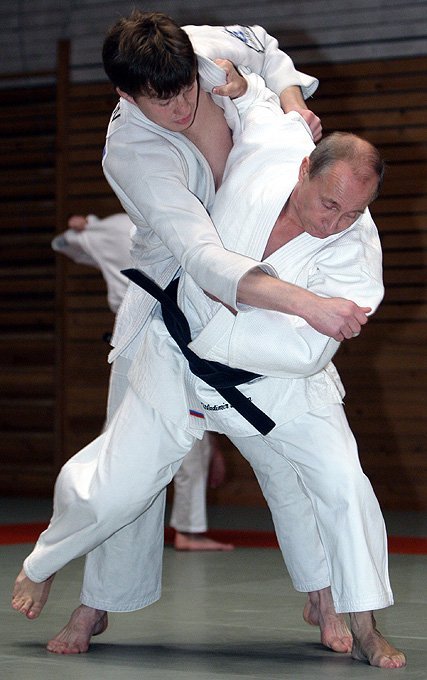|
|
Vladimir Putin Held A Training Session In Judo, St. Petersburg, Russia
|
An old Latin version of the name Rus' was Ruthenia, mostly applied to the western and southern regions of Rus' that were adjacent to Catholic Europe. The current name of the country, Россия (Rossiya), comes from the Greek version of Rus', spelled Ρωσία (rosˈia), which was the denomination of Kievan Rus in the Byzantine Empire.
• Early periods
One of the first modern human bones of the age of 35 000 years was found in Russia, in Kostenki on the Don River banks. In prehistoric times the vast steppes of Southern Russia were home to tribes of nomadic pastoralists. Remnants of these steppe civilizations were discovered in such places as Ipatovo, Sintashta, Arkaim, and Pazyryk, which bear the earliest known traces of mounted warfare, a key feature in nomadic way of life.
In classical antiquity, the Pontic Steppe was known as Scythia. Since the 8th century BC, Ancient Greek traders brought their civilization to the trade emporiums in Tanais and Phanagoria. Between the 3rd and 6th centuries AD, the Bosporan Kingdom, a Hellenistic polity which succeeded the Greek colonies, was overwhelmed by nomadic invasions led by warlike tribes, such as the Huns and Eurasian Avars. A Turkic people, the Khazars, ruled the lower Volga basin steppes between the Caspian and Black Seas until the 8th century.
|
|









